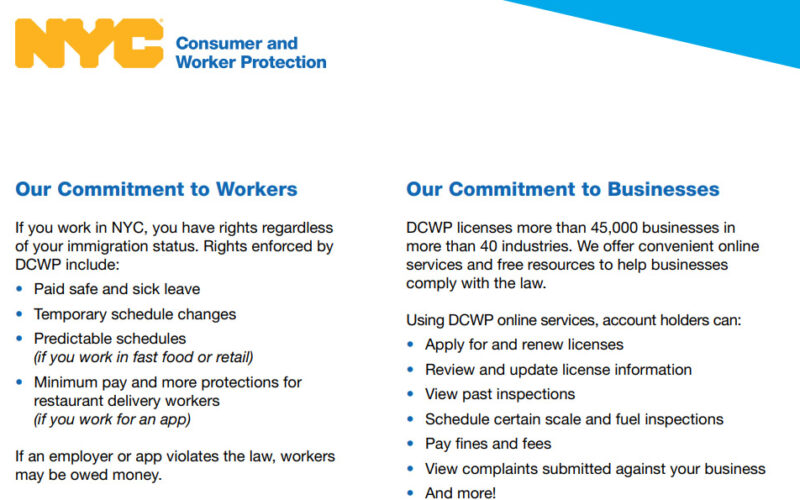New York’s small businesses are hanging on by a thread. From retail shops to corner bodegas and independent grocery stores, the past few years have not only forced small business owners to confront staggering economic challenges, but also a needlessly hostile regulatory environment brought on by out-of-touch policymakers. As always, everyday New Yorkers are ultimately left to pay the price.
Unfortunately, this trend isn’t unique to New York. In 2024, more small businesses experienced revenue drops than increases for the first time since the pandemic. But here in New York, these issues are compounded. Among businesses reporting sales declines, 53% have been shaken by revenue losses greater than 10%. In the retail sector alone, New York City has lost more than 37,000 jobs since 2020 — down more than 11% even as the rest of the private sector regained more than 99% of jobs lost to the pandemic.
Worse over, New York’s small, beloved, independently owned grocery stores — many of which are Black- and Latino-owned — are being crushed by rising costs and razor-thin margins as rents in parts of the Bronx and Queens have jumped more than 30% since 2019, and operating costs continue to climb. As a result, these stores are selling less while paying more — a losing formula that threatens the very survival of the neighborhood grocery store.
Keep in mind, these are the local grocers who help ensure New Yorkers across every borough can access the fresh, nutritious food and daily essentials they need to live healthy lives.
As proposals to create city-owned grocery stores that would compete with existing local grocers gain steam, the situation couldn’t be more dire. Meanwhile, our current leaders in City Hall aren’t just falling well short of the mark to help, they’re now actively making the situation worse.
For all its talk about championing workers and consumers, in recent years the Department of Consumer and Worker Protection (DCWP) has quietly become one of the most aggressively out-of-touch city agencies in the five boroughs.
The department’s latest crusade? Pushing the City Council to expand a flawed pay law that has already failed restaurant delivery workers, this time taking aim at opportunities for grocery delivery workers.
In fact, when the city raised minimum pay for restaurant delivery workers just a few years ago, it triggered widespread lockouts from both DoorDash and Uber, not only blocking nearly 10,000 delivery workers from the ability to work, but also triggering higher prices on delivery services for consumers by an average of 46% per order. Moreover, restaurants were hit with a shocking increase in fees paid to delivery platforms by upwards of 13%.
Unlike restaurant delivery, groceries are not a luxury. Countless New Yorkers who face health, mobility or transportation challenges depend on grocery delivery.
If City Hall doesn’t rein the agency in soon, it won’t just be street vendors clogging sidewalks — it’ll be “for rent” signs filling the windows of once-thriving local shops.
This year they’ve also pushed to gut long-standing caps on street vendor licenses — an act that would crush brick-and-mortar businesses already hanging by a thread. These storefronts pay rent, utilities, taxes, and comply with a dizzying array of regulations — often enforced by DCWP’s inspectors. Now, they’re expected to compete with a surge of unregulated vendors operating steps from their doors, selling the same goods at a fraction of the cost with none of the overhead.
DCWP should be a consumer watchdog — but in practice, the agency has morphed into a ticketing machine, generating millions in fines from the very businesses it claims to protect.
In recent years, the agency’s inspections have increased drastically, up 158% between 2024 and 2025 while corresponding data showed summonses issued to those businesses increased by 259% in the same period.
From outdated signage rules to hyper-technical labor notice requirements, the department’s playbook is clear: confuse, cite, repeat. Rather than working with owners to correct violations, DCWP often issues penalties first and offers guidance later, if at all.
Small businesses, already contending with inflation, shoplifting, and soaring commercial rents, now live in constant worry of a surprise inspection turning into a financial death sentence.
By continually pressing the City Council to pass legislation that will raise costs on thousands of already struggling small businesses, DCWP will inadvertently force countless businesses to shut their doors for good will, making food even more expensive for everyday New Yorkers.
If New York is serious about helping small businesses thrive, City Hall must rein in DCWP before it’s too late.
Miller is the executive director of the NYC Black Chamber of Commerce.








